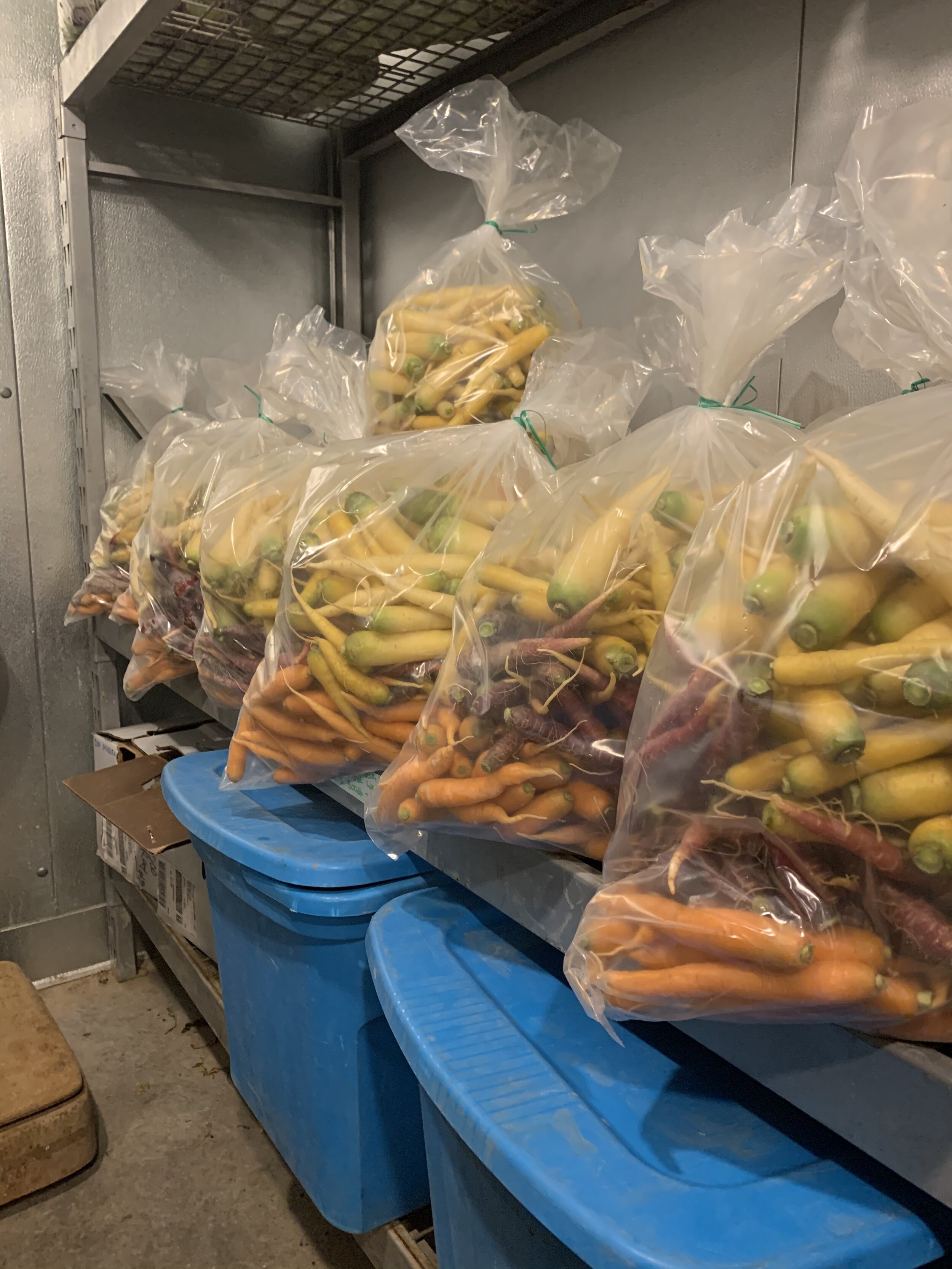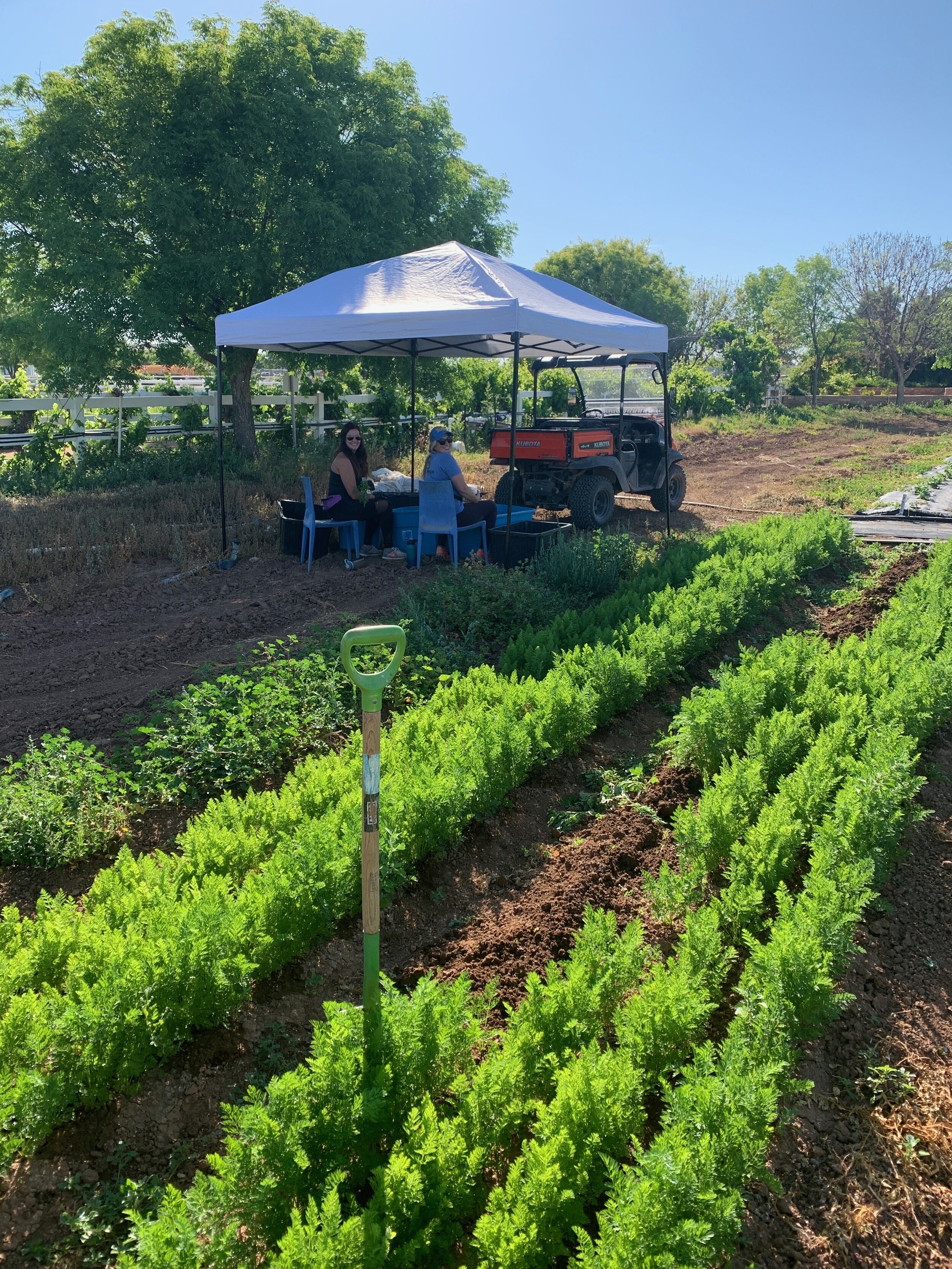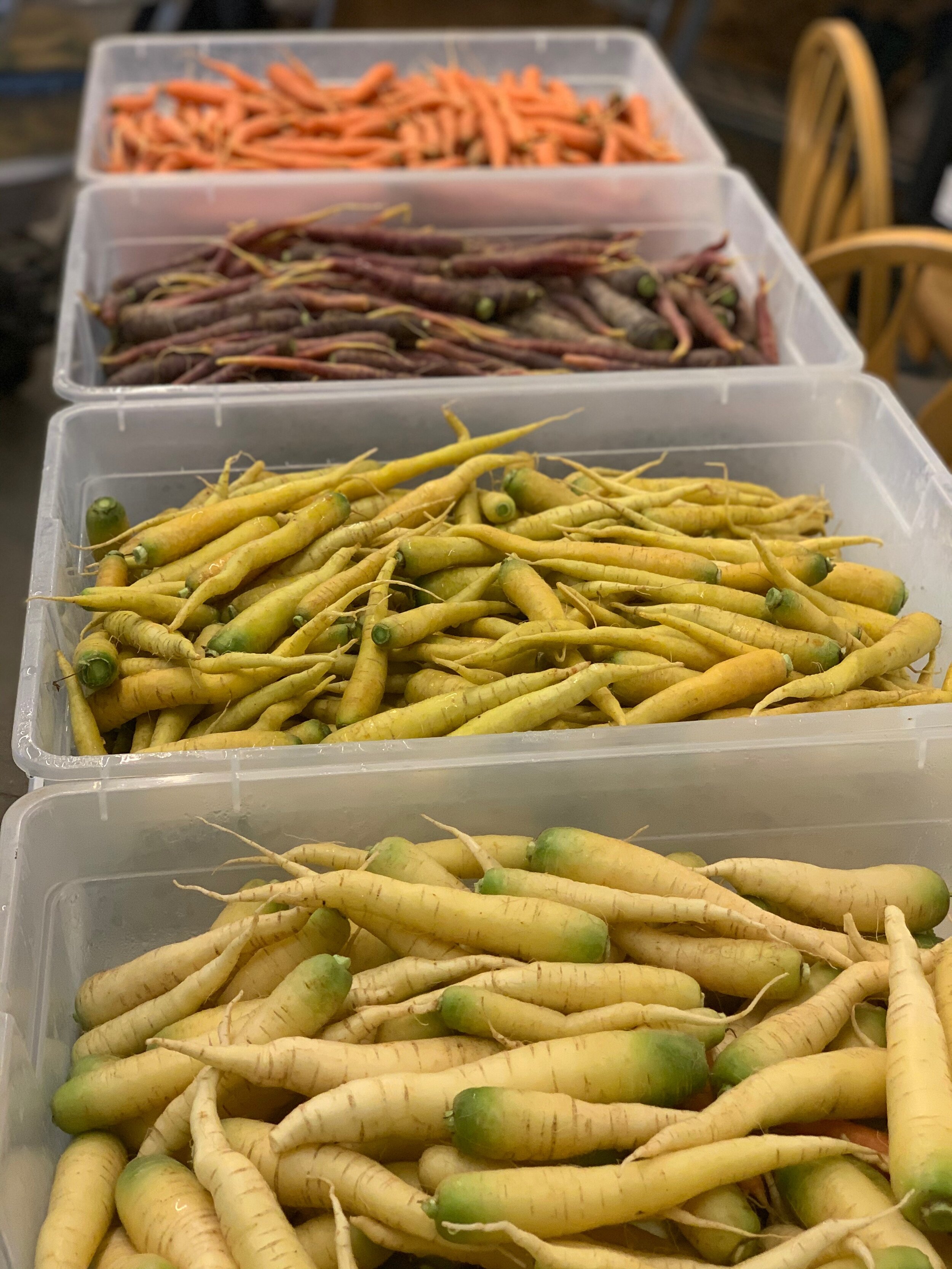Future Farmers in the Time of Coronavirus
Coronavirus can't keep the most loyal educators and leaders down. Here are three of the many inspirational ways Arizona communities are ensuring school gardens, farm to school procurement, & young agriculturalists can continue their learning virtually.
1. Youth Livestock Auctions Go Virtual
Photo from Pima County Junior Livestock Auction Facebook Page.
4-H and FFA youth across Arizona have made investments in steers, hogs, sheep, goats, chickens, and other livestock over the last seasons, intending to raise and nourish their animals for auction at this Spring’s regional fairs, a long-standing tradition of leaning on their communities to support their projects and journeys as youth leaders and entrepreneurs.
The novel Coronavirus has brought large events, including fairs and the associated auctions, to a halt.
Yet auctions across the state are taking their auctions virtual. Anyone can buy, you don't even need to be a business! Get a group together to share the meat, or keep it for yourself. Pima County Junior Livestock Auction has bidding live now - check it out!
2. Phoenix’s Blue Watermelon Project turns to Orange Carrots
Valley Schools had ordered 5000 pounds of carrots from local farmers for a spring-time farm to school educational campaign but were unsure of what to do with all those carrots, as school lunch programs have shifted their operations so dramatically amid the shutdown.
The Arizona Farm to School Network helped prove that where there is a will, there’s a way! The beautiful carrots grown by Agritopia Farm, Blue Sky Organic Farms, Maya's Farm and Pinnacle Farms will nourish and be enjoyed by 25,000 students in 5 school districts starting next week!
Blue Watermelon Project, a coalition of local chefs and restauranteurs, is playing a major role in keeping this project moving forward by offering volunteer chefs to help process the carrots into individual packages, in lieu of adequate school kitchen staff availability at this time. Additionally, Blue Watermelon Project is subsidizing the school bill $1.25 per pound, offsetting the slightly higher price point needed by our community farmers to make ends meet.
Follow along on social media as the carrots get processed and distributed over the next 3 weeks!
Harvest Day at the Farm at Agritopia on April 23. Photos by Farmer Tim Colby.
3. Virtual Gardening Lessons & Food Demos for Students
From the Prescott Daily Courier.
At the Prescott Unified School District, the Farm-to-School VISTA Coordinator Paul Rizik, along with Yavapai County Community Health Services Health Educator Suzie Delgado and Lincoln Elementary Library Specialist Sommer Dunn, are committed to maintaining the garden projects and clubs started prior to the spring school closings. Through virtual gardening, this crew of experts is maintaining actual gardens – social distancing rules apply – and encouraging students and their families to create their own gardens at home. The team has created videos and shared tips on how to plant a garden from seed, offered food demonstrations, and offered tips on how to make such things as fresh yogurt and kale smoothies. Complete with recipes. Garden clubs are continuing through the use of Google Classrooms.
Read the full story from the Prescott Daily Courier here.
In Tucson, Program coordinators in the Community and School Garden Program are hard at work putting together lessons and videos for TUSD students during the shutdown. Jessie Rack, coordinator of the Supporting Environmental Education and Communities program, which is part of CSGP, currently has two videos for home learning: “Science Will Save the World! How to Make a Homemade Magnifying Glass” and “Who Pooped in the Garden? Worm Science with Jessie Rack.” She plans to produce one video a week – on topics from at-home science experiments to outdoor learning and natural history – for as long as necessary.
Read the full story from the University of Arizona here.






